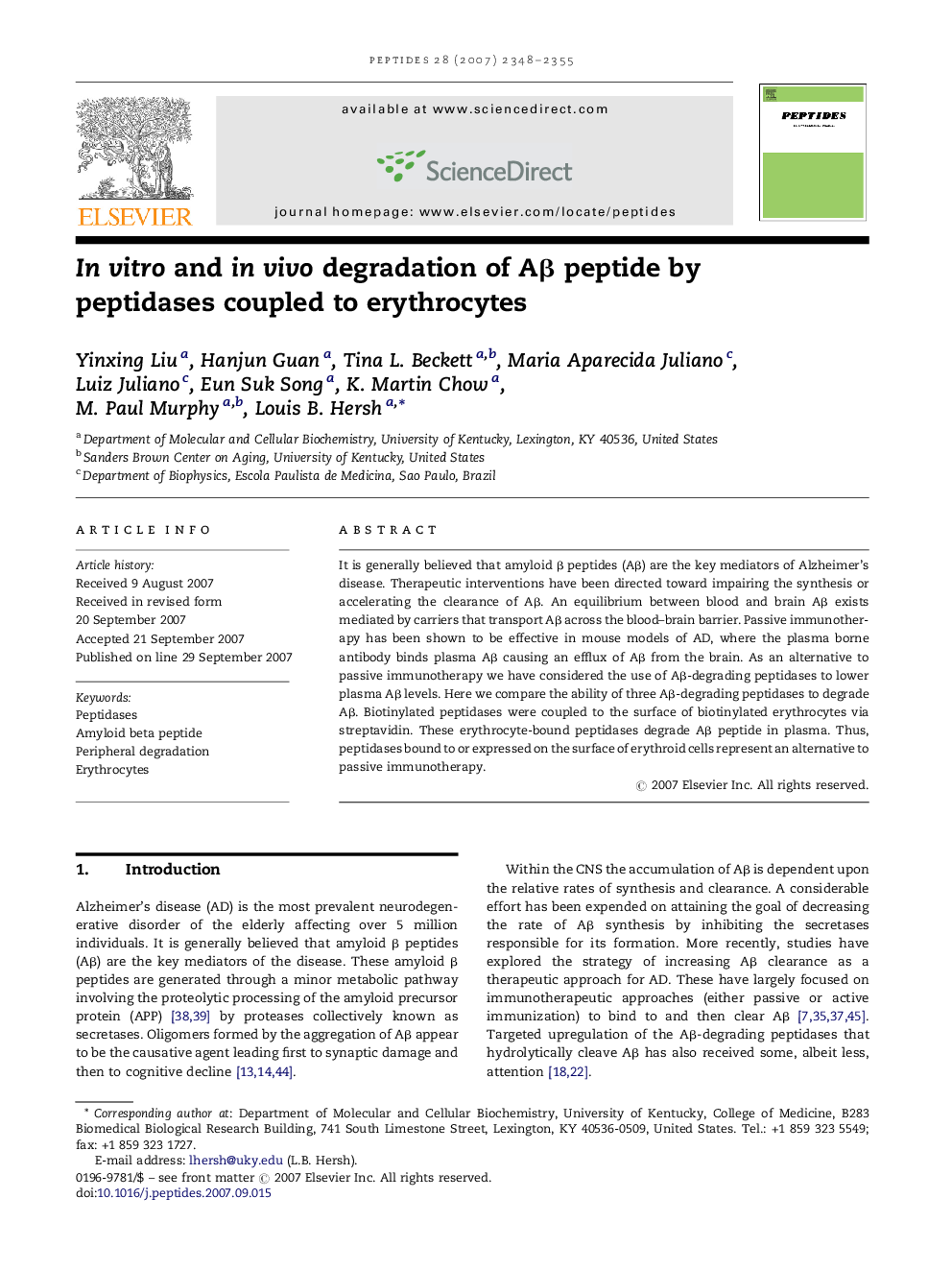| Article ID | Journal | Published Year | Pages | File Type |
|---|---|---|---|---|
| 2007455 | Peptides | 2007 | 8 Pages |
It is generally believed that amyloid β peptides (Aβ) are the key mediators of Alzheimer's disease. Therapeutic interventions have been directed toward impairing the synthesis or accelerating the clearance of Aβ. An equilibrium between blood and brain Aβ exists mediated by carriers that transport Aβ across the blood–brain barrier. Passive immunotherapy has been shown to be effective in mouse models of AD, where the plasma borne antibody binds plasma Aβ causing an efflux of Aβ from the brain. As an alternative to passive immunotherapy we have considered the use of Aβ-degrading peptidases to lower plasma Aβ levels. Here we compare the ability of three Aβ-degrading peptidases to degrade Aβ. Biotinylated peptidases were coupled to the surface of biotinylated erythrocytes via streptavidin. These erythrocyte-bound peptidases degrade Aβ peptide in plasma. Thus, peptidases bound to or expressed on the surface of erythroid cells represent an alternative to passive immunotherapy.
